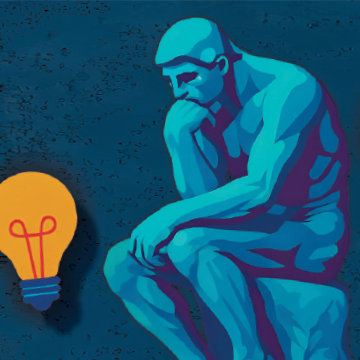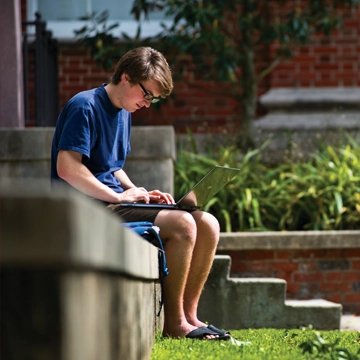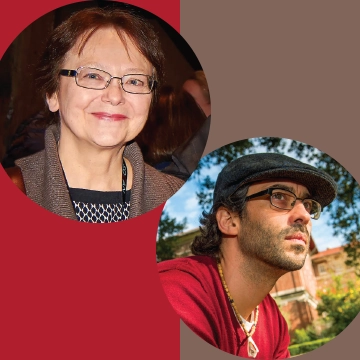Ronna Burger, Catherine & Henry J. Gaisman Chair and Professor, Philosophy
Originally published in the 2025 issue of the School of Liberal Arts Magazine
The question of liberal arts education, if framed as a debate between “content” and “aptitude” taken as a mutually exclusive dichotomy, is seriously misleading. In fact, the most meaningful way to develop intellectual aptitude, I would argue, requires engagement with a particular content: the classic works that have inspired thinkers, writers, and artists over centuries, traditionally called “the great books.” Grappling with these demanding texts fosters skills in articulating, expressing, and assessing ideas. Entering into dialogue with their authors, we rise to a level we were not even aware of before. Teaching classes devoted to the study of those works over many decades, I have often heard students remark, “This is what I thought a college course would be like.”
The exciting endeavor of interpreting a great book does not come about by simply opening up its pages. A beginner needs guidance in learning what it means to read carefully and thoughtfully, what questions to raise, how to proceed in a paradoxical spirit of moderation and courage. On the one hand, we must assume that these authors are wiser than we are and we have much to learn from them; on the other hand, we must boldly think for ourselves, asking what that wise author could have meant by a puzzling point, pondering how it might shed light on our own concerns. In returning to such a book a second time, or more, we discover new riches, in part by recognizing what we missed before. Since that is just as true for the one who provides this guidance, the teacher is always a student at the same time.
The classics are books that have shaped us and our study of them a journey to understanding who and what we are. Our tradition is rooted in two sources, “Jerusalem and Athens” in shorthand, or the Bible and Greek philosophy, and the nature of the relation between them is a dynamic force in determining our identity. Whatever their dispute answers, an open-minded exploration of these two sources brings to light fundamental questions about issues that continue to occupy us: humanity and divinity, reason and revelation, man and woman, nature and law, opinion and knowledge, individual and community, democracy and tyranny, justice, nobility and the good.
The “canon” of works in which such fundamental questions are addressed should not be approached as a repository of doctrines; on the contrary, one mark of a great book is the way it precludes dogmatism. This is exemplified by the philosopher Socrates, engaged in the activity of “examination of opinion.” Plato’s representation in his dialogues draws the reader into the inquiry, uncovering the partial character of the opinions expressed, and animating a pursuit of the truth. This is not just an intellectual exercise, but the core of a way of life.
The exciting endeavor of interpreting a great book does not come about by simply opening up its pages. A beginner needs guidance in learning what it means to read carefully and thoughtfully, what questions to raise, how to proceed in a paradoxical spirit of moderation and courage.
Plato illustrates the challenges to education in his inventive and profound image of the cave, perhaps especially applicable in our technological epoch. Every society is an enclosed world, we citizens are chained in seats able to see only shadows on a wall in front of us, produced by artifacts carried along behind us, projected by the light of a fire. But we are not fated to imprisonment: Every cave has an opening to the light outside, and it is always possible to be turned around, to discover the cause of the images previously taken for reality, and ultimately to consider whether and how those constructions reflect what is true by nature. Plato offers a subtle hint of the role of the philosopher in this process: A figure inside the cave is busy asking a newly released prisoner about the passing artifacts, “What is it?” This is the question addressed in each Platonic dialogue: What is justice, or courage or moderation or knowledge, love or friendship or pleasure, among other matters of the greatest importance to us.
Pursuing such questions through our study of the classics — reading, thinking, and conversing — frees us from an “unexamined life,” unlocking the valuable potential of a liberal arts education, for which college years should be a preparation.
Ronna Burger is a professor of Philosophy and holds the Catherine & Henry J. Gaisman Chair in Judeo-Christian Studies. Her new book The Phaedo: A Platonic Labyrinth and On Plato's Euthyphro, is a revised and expanded edition that includes a new preface, “The Death of Socrates and the Post-Socratic Schools,” and an essay, “On Plato's Euthyphro.”




